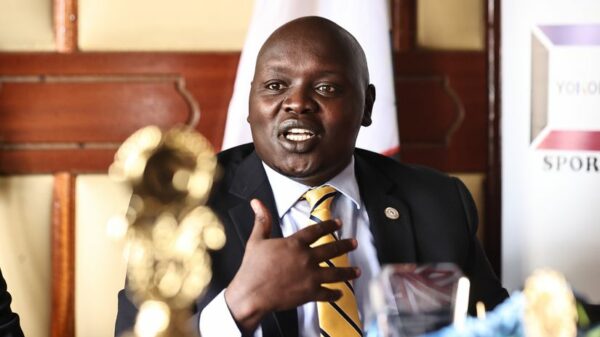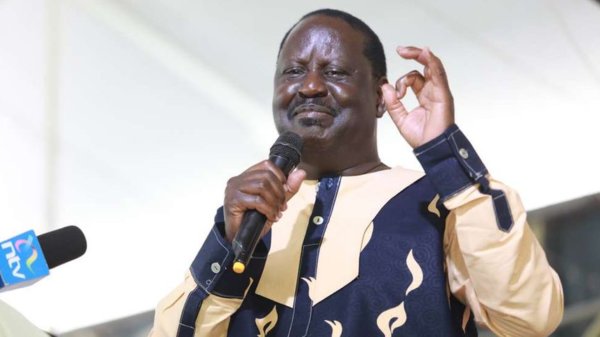
Kenya stands as a monument to hypocrisy, a nation where the elected representatives draw salaries that tower above their global peers, yet deliver governance so shambolic that it borders on criminal negligence.
This stark contrast is vividly illustrated in a recent infographic showing Kenyan MPs earning an astronomical 97 times the country’s GDP per capita, a figure unmatched by any other nation. This disparity is not merely a statistical anomaly but a damning indictment of a political class that epitomizes corruption, ineptitude, and moral bankruptcy.
Kenya’s MPs are notorious for their insatiable greed. Despite earning $78,500 annually—an astronomical sum in a country where the average citizen scrapes by on a fraction of that amount—they constantly push for higher pay and allowances.
This relentless pursuit of personal enrichment comes at the expense of the very people they are supposed to serve. The contrast between their lavish lifestyles and the abject poverty of their constituents is a grotesque tableau of inequality.
Corruption is the lifeblood of Kenya’s political system. Transparency International consistently ranks Kenya among the most corrupt nations in the world, with the public sector—and particularly Parliament—at the epicenter of this malaise. MPs routinely embezzle public funds, demand kickbacks for government contracts, and engage in outright theft from state coffers. These actions not only drain the nation’s resources but also erode public trust in government institutions.
The moral decay within Kenya’s Parliament is palpable. MPs are frequently embroiled in scandals involving everything from sexual harassment to drug trafficking.
These transgressions are not isolated incidents but part of a broader culture of impunity where accountability is virtually nonexistent. The legal system, often compromised by political interference, fails to prosecute these crimes effectively, allowing MPs to act with brazen disregard for the law.
This pervasive corruption and immorality translate into abysmal governance. Basic public services such as healthcare, education, and infrastructure are in a perpetual state of disrepair.
While MPs live in luxury, millions of Kenyans lack access to clean water, reliable electricity, and adequate medical care. The failure to deliver these essential services underscores the incompetence of a political class more concerned with self-preservation than public welfare.
The legislative output of Kenya’s Parliament is equally dismal. Important bills languish for months, sometimes years, as MPs prioritize personal business over legislative duties. When laws are passed, they often serve narrow interests rather than the common good, reflecting the pervasive influence of money in politics.
The resultant legal framework is a patchwork of poorly conceived, inconsistently enforced regulations that stifle economic growth and perpetuate inequality.
Education, a cornerstone of national development, is another casualty of this political dysfunction. Despite numerous reforms and substantial budget allocations, Kenya’s education system remains inadequate.
Classrooms are overcrowded, teachers are underpaid, and educational materials are scarce. The irony is not lost on the public: while MPs enrich themselves, the future of the nation—the children—are condemned to a cycle of poverty and ignorance.
The health sector, too, is in a state of crisis. Public hospitals are chronically underfunded, understaffed, and ill-equipped. Patients often have to bring their medical supplies or seek treatment in private facilities, which are unaffordable for the vast majority. This healthcare debacle is a direct result of the systemic corruption and mismanagement that plague the government, with health funds frequently diverted into MPs’ pockets.
Agriculture, the backbone of Kenya’s economy, suffers from similar neglect. Smallholder farmers, who constitute the majority of the rural population, receive scant support from the government. Agricultural policies are erratic, subsidies misallocated, and extension services virtually nonexistent. This neglect has led to declining productivity and increased food insecurity, further exacerbating the plight of the poor.
Infrastructure development, a key driver of economic growth, is another area where the government’s failure is glaring.
Road networks are dilapidated, public transport chaotic, and urban planning non-existent. Projects that do get off the ground are often marred by delays, cost overruns, and substandard workmanship, all symptomatic of the endemic corruption that permeates the system.
The environmental degradation in Kenya is yet another testament to the MPs’ dereliction of duty. Illegal logging, wildlife poaching, and pollution are rampant, driven by greed, and facilitated by lax enforcement of environmental laws. This environmental plunder not only threatens biodiversity but also undermines the livelihoods of communities that depend on natural resources.
The electoral process in Kenya is itself a farce. Elections are marred by violence, voter bribery, and rigging. The Independent Electoral and Boundaries Commission (IEBC) lacks credibility, and the judiciary, tasked with resolving electoral disputes, is often compromised.
This electoral fraud perpetuates a cycle of illegitimacy and disenfranchisement, eroding the foundations of democracy.
Internationally, Kenya’s reputation has suffered immensely. Once hailed as a beacon of stability in East Africa, the country is now seen as a hotbed of corruption and political instability. This tarnished image has deterred foreign investment and strained diplomatic relations, further isolating the nation on the global stage.
The economic consequences of this political debacle are profound. Unemployment is high, especially among the youth, who are left disillusioned and disenfranchised. The informal sector, where many turn for survival, is unregulated and precarious.
Economic growth, while occasionally robust, fails to translate into tangible benefits for the majority due to the skewed distribution of wealth.
The social fabric of the nation is fraying. Ethnic divisions, often exploited by politicians for electoral gain, have deepened.
Social cohesion is under threat as trust in public institutions wanes and citizens become increasingly disillusioned with the prospects of meaningful change.
The rise of vigilantism and extrajudicial actions by frustrated citizens is a worrying trend. As faith in the legal and political systems erodes, individuals and communities are taking the law into their own hands, leading to increased violence and insecurity.
Kenya’s youth, who make up the majority of the population, are particularly disillusioned. They face a future where opportunities are scarce, and merit is often overshadowed by nepotism and patronage. This disillusionment manifests in apathy, emigration, and in some cases, radicalization.
The vibrant civil society, once a pillar of democracy in Kenya, is under siege. Activists and journalists face harassment, intimidation, and violence. The space for dissent is shrinking, and the government’s tolerance for criticism is waning, further undermining democratic freedoms.
Despite these bleak realities, there are pockets of resilience and hope. Civil society organizations continue to advocate for transparency and accountability.
The judiciary, albeit imperfect, occasionally delivers landmark rulings that challenge the status quo. And the Kenyan people, through their resilience and ingenuity, continue to strive for a better future.
In essence, Kenya’s Parliament is a microcosm of the nation’s broader governance crisis. The exorbitant salaries of MPs are not reflective of their performance but rather a symbol of the systemic corruption and moral decay that afflict the country.
To restore faith in public institutions and pave the way for sustainable development, Kenya must undertake comprehensive reforms that address the root causes of this dysfunction. Only then can the nation realize its full potential and fulfill the promise of democracy.

































































